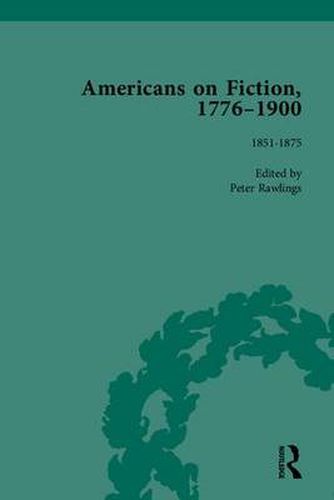Readings Newsletter
Become a Readings Member to make your shopping experience even easier.
Sign in or sign up for free!
You’re not far away from qualifying for FREE standard shipping within Australia
You’ve qualified for FREE standard shipping within Australia
The cart is loading…






This work presents a collection of prefaces, reviews and articles by Americans on American and European fiction. It draws on such periodicals as the Atlantic Monthly , the Nation , and Galaxy , as well as many of the lesser-known journals and magazines of the period. Charted in these three volumes, which span the period from 1776 to 1900, is the movement from anxious defences of the novel as a necessary vehicle of truth and morality to the fully-fledged theoretical exfoliations of Thomas Sergeant Perry, George W. Lathrop, Henry James, and others. In the colonial period, and for some time after independence, the writing and reading of fiction in America was condemned by Noah Webster, among others, for creating Momentary scenes of unreal bliss and twisting the understanding into every obliquity of distortion . At that point, few could have forseen that by the close of the 19th century Americans would not only dominate the theory and practice of fiction but also be among its principal innovators in the realms of naturalism and modernism. These volumes are far from confined, however, to the penetrating voices of white male high culture, or to the inclusion of landmark interventions. Women dominated the production and consumption of novels during the feminine fifties , and there were also reflections on fiction by black writers, reviews and accounts of their work, and a burgeoning corpus of Amerindian writing.
$9.00 standard shipping within Australia
FREE standard shipping within Australia for orders over $100.00
Express & International shipping calculated at checkout
This work presents a collection of prefaces, reviews and articles by Americans on American and European fiction. It draws on such periodicals as the Atlantic Monthly , the Nation , and Galaxy , as well as many of the lesser-known journals and magazines of the period. Charted in these three volumes, which span the period from 1776 to 1900, is the movement from anxious defences of the novel as a necessary vehicle of truth and morality to the fully-fledged theoretical exfoliations of Thomas Sergeant Perry, George W. Lathrop, Henry James, and others. In the colonial period, and for some time after independence, the writing and reading of fiction in America was condemned by Noah Webster, among others, for creating Momentary scenes of unreal bliss and twisting the understanding into every obliquity of distortion . At that point, few could have forseen that by the close of the 19th century Americans would not only dominate the theory and practice of fiction but also be among its principal innovators in the realms of naturalism and modernism. These volumes are far from confined, however, to the penetrating voices of white male high culture, or to the inclusion of landmark interventions. Women dominated the production and consumption of novels during the feminine fifties , and there were also reflections on fiction by black writers, reviews and accounts of their work, and a burgeoning corpus of Amerindian writing.